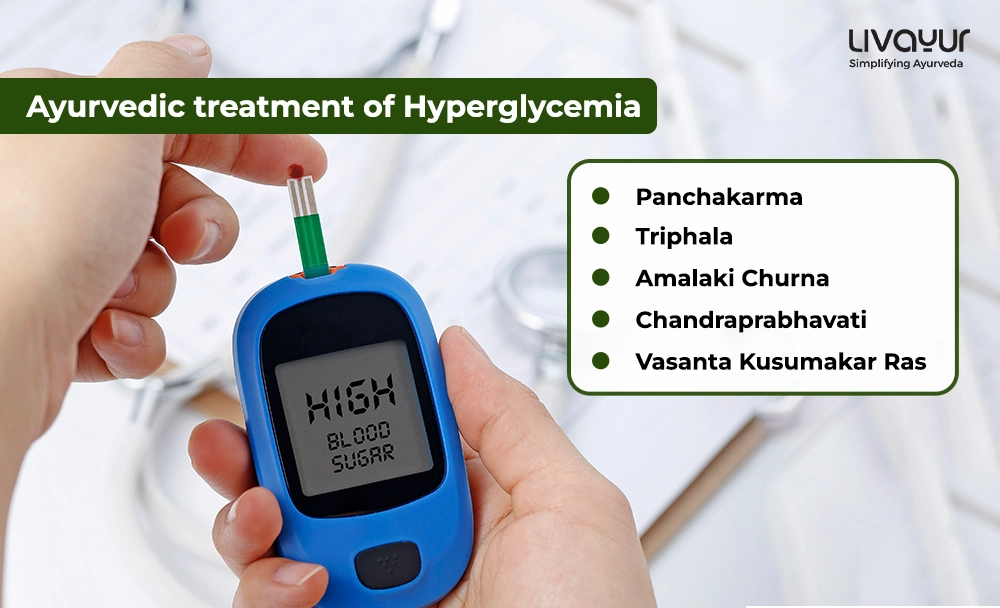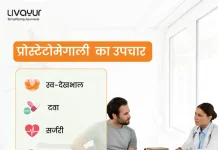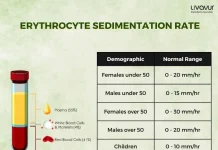
Have you ever experienced a feeling of extreme thirst, blurry vision, or a constant need to urinate? These could be signs of high blood sugar or hyperglycemia. The condition occurs when too much glucose or sugar is in the bloodstream, which can lead to serious health complications if left untreated.
This article explores everything you need to know about hyperglycemia, including its meaning, symptoms, causes, and treatment options. Whether you or someone you know is living with or looking to learn more about blood sugar levels, this guide will provide valuable information to help you better understand this condition.
What is hyperglycemia?
Hyperglycemia means having too much sugar or glucose in your bloodstream. Normally, our bodies break down the carbohydrates we consume into glucose, which is then used by our cells for energy. However, in cases of hyperglycemia, the glucose cannot enter the cells properly and instead accumulates in the bloodstream. [1]
Hyperglycemia is most commonly associated with diabetes. It is a condition where the body has difficulty producing or using insulin, a hormone that helps regulate blood sugar levels. [1] Hyperglycemia can damage blood vessels and organs over time. Monitoring blood sugar levels regularly and taking action if they become too high is crucial. [2]
What are the symptoms of hyperglycemia?
If you’re experiencing hyperglycemia, your body will give you a few tell-tale signs. Here are some common symptoms of high blood sugar levels:
Increased thirst
Your body will compensate for the high blood sugar levels by trying to flush out the excess glucose through urine. It can make you feel dehydrated and thirsty. [3]
Frequent urination
As your body tries to eliminate excess glucose through urine, you may need to urinate more often. [3]
Lethargy
You may feel lethargic or sluggish when your body can’t use glucose properly for energy. [1]
Weight loss
In some cases, high blood sugar levels can cause weight loss despite increased appetite. [1]
Altered mental status
In extreme cases, severe hyperglycemia can cause confusion, difficulty concentrating, and even loss of consciousness. [1]
What is the Hyperglycemia diagnosis?
In Hyperglycemia, glucose levels present in the blood sample are:
- greater than 125 mg/dL while fasting and
- greater than 180 mg/dL 2 hours after a meal
Impaired glucose tolerance or pre-diabetes is indicated by a fasting plasma glucose of 100 mg/dL to 125 mg/dL. [1]
When to seek medical help?
Most people who have hyperglycemia complain of thirst, sweet cravings, generalized fatigue, abdominal discomfort, and muscle cramps.
Here are a few symptoms or issues that require patients to seek medical attention:
- Frequent Urination
- Sudden Weight Loss
- Lethargy
- Increased thirst
Even when you’re on medication for hyperglycemia, stop taking the medication and seek medical attention if they develop nausea, vomiting, abdominal pain, and dyspnea, as well as having their urine and serum for ketones promptly tested. [9]
What are the causes of hyperglycemia?
Let’s take a look at some common factors that contribute to hyperglycemia:
Diabetes
Diabetes is the most common cause of hyperglycemia. In type 1 diabetes, the body doesn’t produce enough insulin, while in type 2 diabetes, the body doesn’t use insulin properly. [1]
Medications
Certain medications, like glucocorticoids and phenytoin, can lead to hyperglycemia. [1]
Endocrine disorders
Cushing syndrome and pheochromocytoma can lead to hyperglycemia. [1]
Illness or infection
When you’re sick or have an infection, your body releases stress hormones that can cause blood sugar levels to rise. [4]
Stress
When you’re under stress, your body tends to release hormones that can cause blood sugar levels to increase. [4]
Ayurvedic treatment of Hyperglycemia
Treatment of Hyperglycemia in Ayurveda has been documented very extensively. Here is the Ayurvedic approach towards Hyperglycemia: [10]
- Ayurvedic doctors use a multifaceted approach to treating diabetes, which includes—Food adjustments, Herbal treatments, Yoga, Breathing Techniques, and Panchakarma.
- Ayurvedic herbs used to cure diabetes include—Shilajit, Turmeric, Neem, Coccinea Indica, Amalaki, Triphala, Bitter Gourd, Rose Apple, Leaves of Bilva, Cinnamon, Gymnema, Fenugreek, Bay leaf, Aloe vera.
- Herbal decoctions are also used to treat Diabetes mellitus, which are—Triphala, Fenugreek, and Shilajit.
- Ayurvedic remedies “Chandraprabhavati” and “Vasanta Kusumakar Ras” are also used to reduce blood sugar levels.
- Diabetes is also treated using powders (churna) like—Amalaki Churna, Haldi Powder (Turmeric), Naag Bhasma.
Risk factors with hyperglycemia
Risks related to Hyperglycemia are: [1]
- Microvascular complications like retinopathy, nephropathy, neuropathy
- Macrovascular complications like coronary artery disease, cerebrovascular disease, peripheral vascular disease
- Depression
Diet and lifestyle changes to cure hyperglycemia
Ayurveda offers some natural remedies for managing hyperglycemia. Here are some possible diet and lifestyle changes to cure high blood sugar levels:
Herbs
Certain herbs, such as bitter melon, cinnamon, and fenugreek, are believed to help regulate blood sugar levels. [5] Furthermore, ginger has proven antidiabetic and related beneficial effects. [8] These herbs can be taken in supplement form or added to your diet.
Yoga and meditation
Hatha yoga and Raja yoga can improve insulin sensitivity. It helps lower blood sugar levels. [6]
Diet
Ayurveda focuses on the importance of a balanced diet that includes whole grains, vegetables, and lean proteins. Avoid processed foods and sugar.
Lifestyle changes
Regular exercise and adequate sleep can also help improve blood sugar control. [7]
Prevention of hyperglycemia
To prevent complications caused by hyperglycemia, these are the preventive steps that need to be taken: [1]
- See an ophthalmologist for an annual eye examination.
- Check the hemoglobin A1c level every three to six months.
- Every year, check the amounts of albumin in the urine.
- Check the feet at every medical appointment.
- Try and maintain your blood pressure below 130/80 mmHg.
FAQs
1. What is the meaning of hyperglycemia?
Hyperglycemia is a condition with an abnormally high level of sugar (glucose) in the blood. [1]
2. What is the difference between hypoglycemia and hyperglycemia?
Hypoglycemia refers to low blood sugar levels, while hyperglycemia refers to high blood sugar levels. The symptoms and causes of the two conditions differ.
3. What are the signs and symptoms of hyperglycemia?
Some of the common ones symptoms of hyperglycemia include frequent urination, increased thirst, weight loss, and altered mental status. [3]
Conclusion
Hyperglycemia is a common condition that can occur due to diabetes, medication, illness, and hormonal imbalances. The symptoms of hyperglycemia can range from mild to severe, and it’s important to seek medical attention if you experience any of them.
Ayurveda offers natural remedies for managing high blood sugar levels, such as herbs, yoga and meditation, and lifestyle changes. Working with your healthcare provider to develop an individualized treatment plan that works best for you is important. Regular monitoring of blood sugar levels, lifestyle changes, and a balanced diet can help manage hyperglycemia.
Disclaimer
The information provided here is not intended to replace professional medical advice or treatment.
References
- Hyperglycemia. 28 April 2022
- Diabetes – long-term effects.
- Symptoms and Blood Glucose Levels in Diabetics. 15 March 1985
- Hyperglycaemia (high blood sugar).
- Natural Health Products and Diabetes: A Practical Review.
- Risk Indices Associated with the Insulin Resistance Syndrome, Cardiovascular Disease, and Possible Protection with Yoga: A Systematic Review. November 2005
- Exercise in Individuals With IDDM.
- Indian Herbs and Herbal Drugs Used for the Treatment of Diabetes.
- Initial Management of Severe Hyperglycemia in Type 2 Diabetes
- Ayurvedic treatments for diabetes mellitus.

















